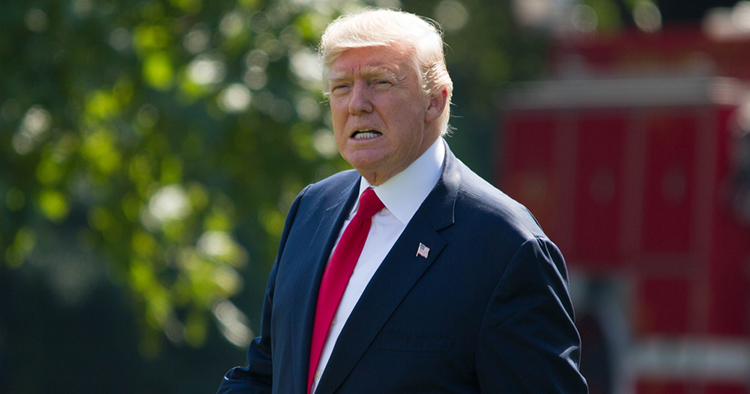Youth is 'a thumb on the scale' for Trump's judicial nominees, while weakness is disfavored

President Donald Trump. Michael Candelori / Shutterstock.com
President Donald Trump is seeking youth and two other characteristics in his judicial nominees.
Trump has told advisers the nominees should be young, conservative and strict constructionists, the Washington Post reports. In most cases, the nominees should be under 50 and preferably under 40.
The president also has one overarching question about any possible nominee, according to Leonard Leo, a Trump adviser on judges who is the executive vice president of the Federalist Society. Trump will say, “He’s not weak, is he?” Leo told the Washington Post.
White House counsel Donald McGahn has “almost unilateral authority” to run the nominations process, according to the article. He and his staffers develop lists of potential candidates with help from Vice President Mike Pence, Leo, lawyer Chuck Cooper and key Republican senators, including Senate Majority Leader Mitch McConnell of Kentucky.
After interviews and a review process, McGahn usually picks a few finalists for each vacancy and seeks Trump’s approval. Candidates in their 30s and 40s are prioritized. Age is “not a knockout factor, but there’s a thumb on the scale for nominating younger people,” according to adviser John Malcom, a vice president at the Heritage Foundation who spoke with the Post.
Pence had backed two federal appeals nominees who won confirmation: Texas Supreme Court Justice Don Willett, confirmed to the New Orleans-based 5th U.S. Circuit Court of Appeals, and Amy Coney Barrett, a law professor at the University of Notre Dame, confirmed to the Chicago-based 7th U.S. Circuit Court of Appeals.
Trump has nominated 59 people to the federal courts, and 19 have been confirmed, according to the Washington Post. The ABA Standing Committee on the Federal Judiciary lists the nominees and the committee’s ratings here (PDF).
The Senate Judiciary Committee did not move forward with the nominations of two controversial candidates: Jeff Mateer and Brett Talley. Mateer once characterized a lawsuit over a transgender child’s bathroom access as evidence of Satan’s plan. Talley, a former ghosthunter, was identified as the author of blog comments defending the early Ku Klux Klan.
A third nominee, Matthew Spencer Petersen, withdrew after he couldn’t define “motion in limine” or answer other legal questions. Petersen is a member of the Federal Election Commission.
The Post says the nomination process nonetheless “has been relatively efficient and analogous to those in past administrations.”



